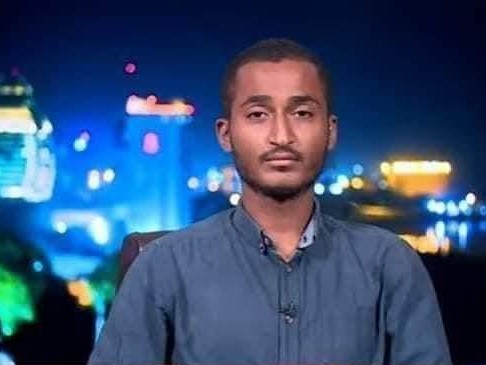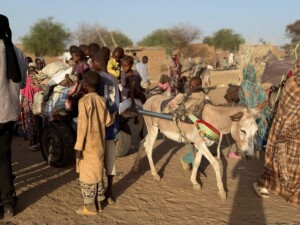Khartoum resistance committees to form local Legislative Councils

Ahmed Esmat, the spokesperson for the Khartoum City Resistance Committees (social media)
KHARTOUM – January 24, 2023
Resistance committees in Khartoum announced that they are in the process of forming Legislative Councils in the city’s districts, which is to lead to the formation of a national Legislative Council.
Ahmed Esmat, the spokesperson for the Khartoum Resistance Committees, told Radio Dabanga that they have formed committees that are establishing Legislative Councils within the neighbourhoods of the city.
To the frustration of many revolutionary groups, the Transitional Legislative Council (TLC) stipulated by the Juba Peace Agreement was never formed, in part due to an inability of the Forces for Freedom and Change (FFC) to agree on a list of TLC members.
Two years ago, Shamson Yohanna from the resistance committees in El Salama, southern Khartoum, said that he expected the Legislative Council to not represent the people. “The largest percentage goes to the FFC, and they do not represent youth like us in the resistance committees, women, and the members of the armed struggle movements.”
The current formation of local Legislative Councils “is based on the unified charter of the resistance committees and will lead to the formation of a parallel government that derives its legitimacy from the members of the neighbourhood committees who will be organised in general assemblies,” Esmat explained.
The activist added that the new councils “will restrict all the work of the tax system”.
Revolutionary Charter to be signed
The Revolutionary Charter for Establishing People’s Power, which regulates the work of the resistance committees, is ready to be signed in its final form.
“It will be announced within two days and presented to all political groups and committees that reject the Framework Agreement,” he explained, referring to the agreement signed by Sudan’s military junta and a coalition of civilian parties led by the mainstream Forces for Freedom and Change-Central Council (FFC-CC).
A version of the unified charter has already been signed four months ago after months of work by the resistance committees to unify two different charters presented by the resistance committees of Wad Madani and Khartoum.
All resistance committees in Khartoum agree with the Revolutionary Charter, except for the resistance committees in the Southern Belt of Khartoum, Haj Yousef, Khartoum North (Bahri), Sharg en Neel, and Central Khartoum.
“We are still working to convince the hold-out committees, which all reject the Framework Agreement, to sign the Charter and join us in the formation of Legislative Councils in the localities,” Esmat explained.
‘We are still working to convince the hold-out committees, which all reject the Framework Agreement, to sign the Charter and join us in the formation of Legislative Councils in the localities’
Resistance Committees
The idea of organising local Legislative Councils in the neighbourhoods, to eventually lead to a national Legislative Council, fits with the grassroots activism of the resistance committees, taking power into their own hands whilst championing decentralised governance.
The resistance committees are decentralised and hyper-localised in their ways of operating and are mainly made up of urban youth, but crossing many geographical and social boundaries of class and ethnicity.
They emerged during the 2018 December Revolution and played an incredibly important part in Sudan’s pro-democracy movement ever since. “The role they played in toppling [Al Bashir’s] regime ironically places a responsibility on their shoulders ‘to protect’ the revolution,” prominent Sudanese political scientist Atta El Battahani wrote for the Chr. Michelsen Institute (CMI) in 2021.
Following the June 3 Massacre at the sit-in at the Army Command in Khartoum in 2019, the resistance committees ‘emerged as watchdogs’ making sure that other opposition organisations, such as the Sudanese Professional’s Association (SPA), the FFC, and political parties, would not compromise on the ideals of the December revolution in exchange for government power, El Battahani explained.
They are advocating a discourse transcending old tribal, ethnic, and regional affiliations and their horizontal organisational structure reflects their desire to maintain their autonomy and independence from political affiliations.
The committees are also “the only force trusted by families of the martyrs and the general public” because they do not represent any of the old powers or corrupt movements, El Battahani said.











 and then
and then